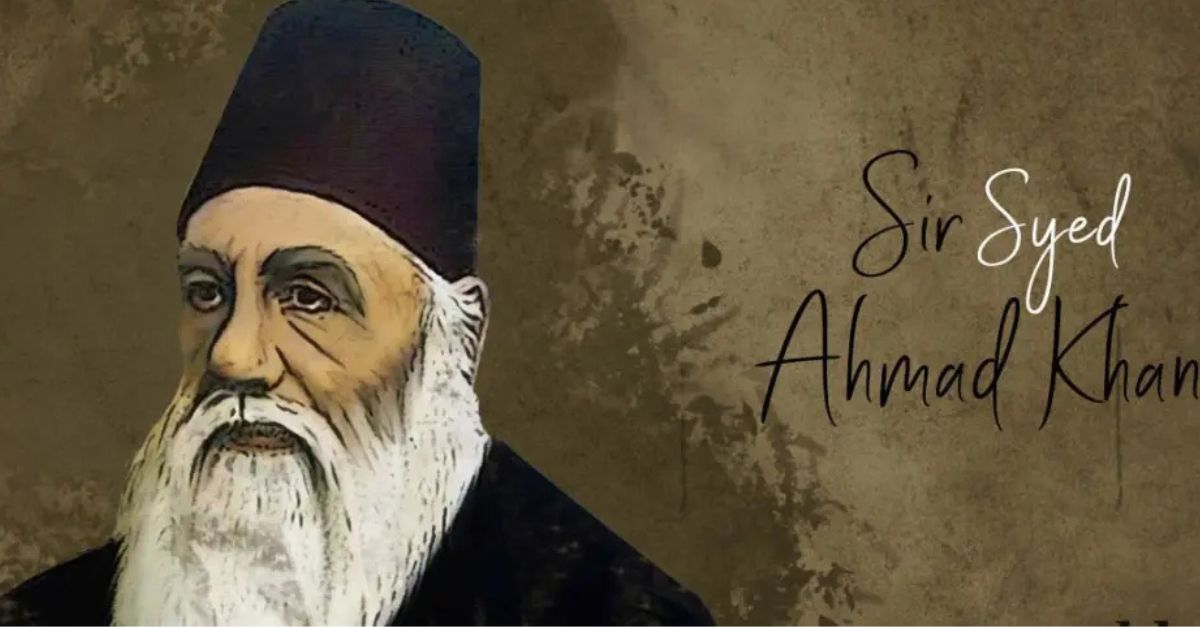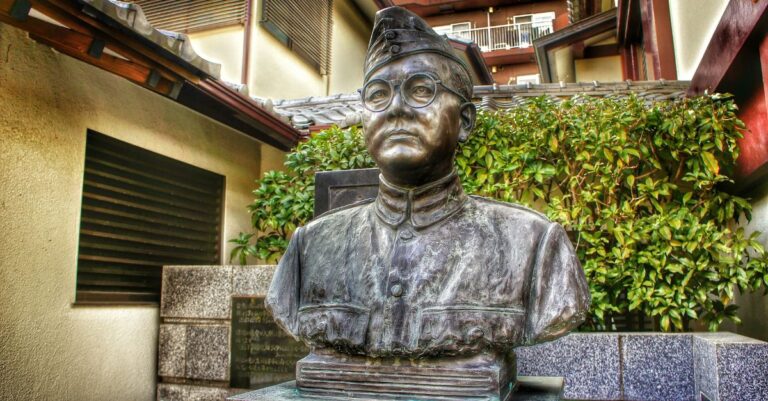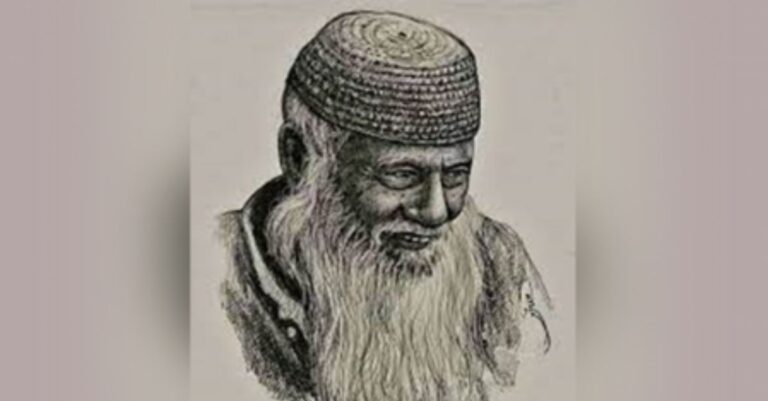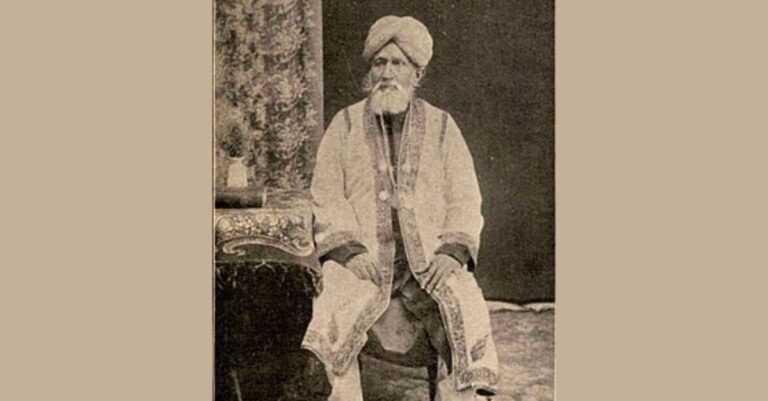Sayyid Ahmad Khan was born on 17th October 1817 in Delhi and grew up there. It was a Delhi where people from all religions were living amicably under the titular Bahadur Shah Zafar. Perhaps this explains why he strove for a plural society all his life. He was a man straddling two different parts of the world– Indian/ Muslim and British/ Christian. In his writings, speeches and actions we see both idealism and pragmatism. He experienced the tumultuous violence led by the British to crush the revolt of 1857 when his uncle and cousin were killed. Like many other intellectuals in 19th century Delhi, he felt it was best to negotiate with the British than to fight a losing battle. This gave him a taste for the nineteenth-century British notions of politics, religion, arts and life, in general.
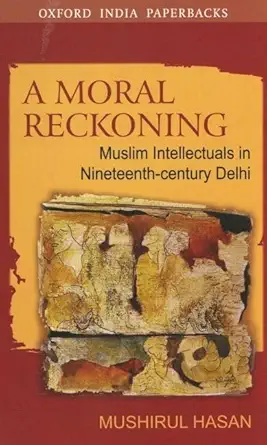
Sayyid Ahmad as a historian
Aligarh’s history department is world famous and is called Aligarh School of historiography. It has produced luminaries like Mohammad Habib, Nurul Hasan, K. A. Nizami, M. Athar Ali and Iqtidar Alam Khan. Today, AMU has Shireen Moosvi, Mohammad Sajjad, S. Nadeem Rezavi and the living legend Irfan Habib. I often wonder: is this the legacy of Sayyid Ahmad? He was a man who edited Ain-i Akbari by Abul Fazl and wrote Asar-us Sanadid which won him the fellowship of the Royal Asiatic Society. However, his best work on history is usually considered to be Asbab-i Baghawat-i Hind (Causes of the Indian Revolt) as it not only analysed but also offered a solution to the British government to properly govern its subjects.
Communal harmony and inter-faith dialogue
One of the chief concerns of Sayyid Ahmad was communal harmony and inter-faith dialogue. He valued symbols of composite living like the places of worship and, therefore, displayed affection for Delhi’s Hindu and Jain temples. He launched the project of strengthening mutual respect between Muslims and Christians, arguing that both religions contained the same doctrine of the unity of God, and that all biblical prophets are integrated into the Islamic tradition. He was convinced that it was mutually beneficial to work together harmoniously. This belief guided Sayyid Ahmad’s close interactions with Rai Shankar Das (Ramchander’s brother), with Raja Hardeo Narain Singh, and with one of his major patrons of the Aligarh project, Raja Jaikishen Das. Rooted in the country’s traditions, he believed, that the common history and interests of those who lived in the same country created a deep bond between them.
Journals and speeches
Sayyid Ahmad Khan believed that right knowledge leads to right action. To meet this end, he founded the All-India Muhammadan Educational Conference in 1886. It published essays from Aligarh’s leading lights. He founded Tahzibul Akhlaq, an Urdu journal, in 1870. It was designed to cultivate among its readers social refinement and liberal thought. Its aim was ‘to persuade the Muslims of [British] India to embrace the highest form of civilization’. Zakaullah listed eight points to illustrate Tahzibul Akhlaq’s impact ‘from Peshawar to Kanyakumari.’ Ghulam Muhammad ‘Tapish’, editor of Lucknow’s Awadh Akhbar, reprinted many of its articles. Wahiduddin Salim, editor of Maarif, offered tribute to Tahzibul Akhlaq‘s contribution to Urdu language and literature. Clearly, among the broadminded and more far-seeing sections, the lamp lit by Sayyid Ahmad burnt brightly.
Importance of modern education
Sayyid Ahmad stressed that, in the ideal world, knowledge of science, history, and literature ought to be attainable by all who desire it. Education is a path to a bright future, both for individuals and for the country as a whole. Tarbiyat or children’s upbringing should be undertaken seriously so that they grow up to be humane and just. Aligarh’s Muhammadan Anglo-Oriental (M.A.O.) College was his crowning achievement. He would tell the young pupils, ‘A life devoted to good deeds is better than a thousand acts of devotion and piety, retirement into jungles, and the repetition of God’s name on a rosary.’ The modern college system he wanted to build was a tool both to produce and to reshape knowledge. He stood firm in arguing that Muslims in British India would gain much more by cooperating with the government than they would through futile resistance. In this noble endeavour, he was having helping hands of the two prominent intellectuals of the nineteenth century- Maulvi Zakaullah and Nazir Ahmad who were made trustees of the College.
Islam: A living faith
All these should not lead us to believe that Sayyid Ahmad was an instrumental rationalist. He understood the importance of Islamic principles that govern Muslim societies. Sayyid Ahmad emphasized that the essence of Islam is love for the Prophet and following his Sunna. He championed the Islamic values of moral piety (taqwa), humility, hospitality, and generosity. He cared for friends and family; he saved enough for his parents to perform Hajj, paid for his younger brother’s studies, and bore the expenses involved in close family marriages. He wanted the people to rethink the problems of life in accordance with their circumstances, and to interpret existing religious laws afresh. He asserted that religion is principally a matter of ethical values and governing principles. He discovered the compatibility of Islam with the findings of a free mind.
Friends and admirers
Due to all these, he gained many admirers. Both CF Andrews and Nazir Ahmad admired him. GFI Graham and Altaf Husain Hali wrote biographies of him. Mumtaz Ali (1860–1935), a student at one of Deoband’s Arabic schools, refuted the Ahl-i Hadith attacks on Sayyid Ahmad. Garcin de Tassy complimented Sayyid Ahmad’s commentary on the Bible as ‘informative’, and a ‘synthesis of Eastern and Western learning and scholarship’. Muhammad Iqbal, the twentieth-century poet-philosopher, authored the chronogram inscribed on Sayyid Ahmad’s tomb in the university mosque at Aligarh. According to him, the real greatness of the man consists in the fact that he was the first Indian Muslim who felt the need for a fresh orientation of Islam and worked for it. Sayyid Ahmad is a role model for all the persecuted minorities across nation-states. His death on 27th March 1898 made him immortal in the pages of history. Today, AMU is one of the major minority institutions in India serving Muslims.
- This short essay is based on Mushirul Hasan’s book A Moral Reckoning: Muslim Intellectuals in 19th century Delhi (2005, OUP).

